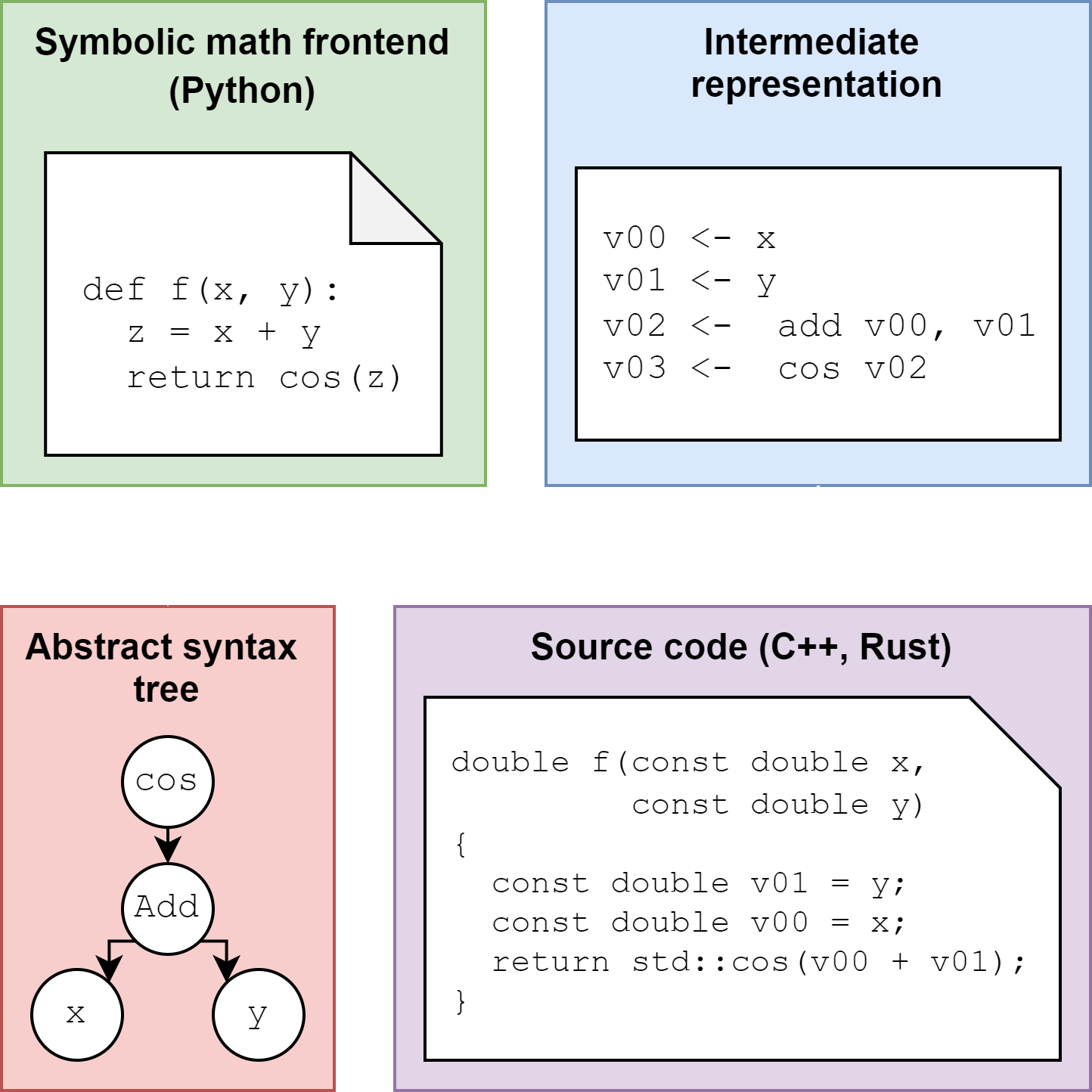1. Introduction¶
wrenfold is composed of two parts:
A symbolic math frontend accessible in Python.
A code generation backend that converts symbolic math to runtime code.
Conceptually, the framework behaves somewhat like a transpiler that converts math into code. At a high level, the steps involved are:
The user implements a Python function that specifies a mathematical expression. As math operations are composed in Python, a symbolic expression tree is constructed.
The symbolic expression tree is flattened into to a simple intermediate representation (IR). Common sub-expressions are eliminated by manipulating this representation.
An abstract syntax tree (AST) matching the simplified IR is assembled. This representation is intended to be generic, such that nearly any language can be emitted downstream.
A code generator converts the AST into a target language (eg. C++). The code generator may be customized from Python in order to suit the needs of a particular project.


At present, wrenfold can target C++, Rust and Python, but it can be extended to other languages relatively easily.